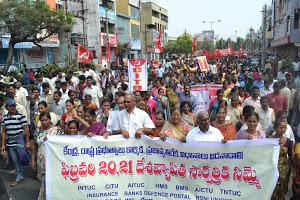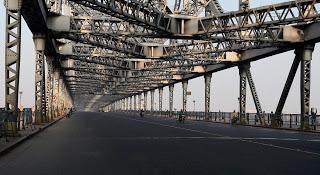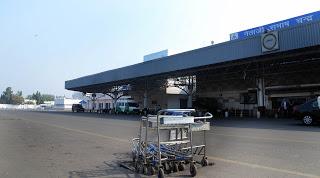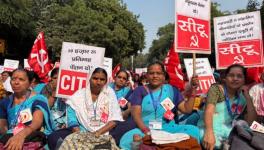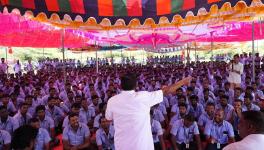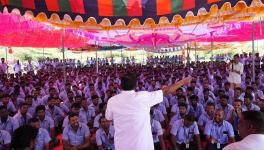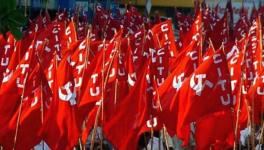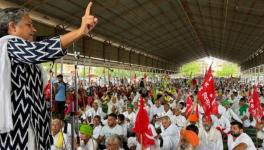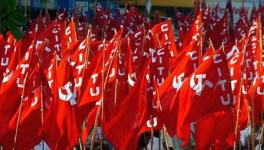Historic General Strike: A Wake-up Call to the UPA Govt
The two-day general strike of the working class on February 20-21 was unprecedented and received an overwhelming response from all over the country. It is the biggest working class action so far in our country, since independence. This strike is historic as it is for the first time in the history of our country that a general strike has been called for two days, i.e., 48 hours. And it is also for the first time that the call has been given jointly by all the eleven Central Trade Union organisations, irrespective of their political affiliations – CITU, AITUC, BMS, INTUC, HMS, AIUTUC, AICCTU, UTUC, TUCC, SEWA, and LPF. More than 10 crores of workers observed strike. The strike reflected the anger of the people against the anti-people policies of the government.
The 10-point demand charter of the strike reflects the burning issues faced by the toiling sections of the country and calls for the reversal of the neo-liberal policies of the government. The charter includes several demands: to check price rise and for universal Public Distribution System; concrete measures for employment generation; strict enforcement of labour laws; social security for all workers; against disinvestment of profit-making Public Sector Units; against contractorisation, equal pay and other benefits for equal work; minimum wage at not less than Rs.10,000, linked with the cost price index for all workers; to remove all ceilings on payment of bonus, provident fund and to increase gratuity, assured pension for all; compulsory registration of trade unions within 45 days, and immediate ratification of the ILO Convention 87 and 98.
This general strike was called as part of the struggle to protect the living and working conditions of the people in the country, in the face of the government’s increasing attacks on them for the benefit of a few national and multinational corporations and the big business. It comes within less than a year after the last joint general strike on February 28, 2012 with the same demands which received massive response from the working class in the country and wide support from the other sections of the working people as well.
The workers on February 20-21, struck work in all industries and commercial sectors. The strike was effective in petroleum sector, coal, mining, port & dock, plantation, manufacturing, banking and insurance. Central and state government offices were also affected by the strike. A large number of scheme workers like anganwadi workers, mid-day- meal workers, ASHAs etc., and workers in the unorganised sectors took part in the strike in large numbers. In all states, from Arunachal Pradesh to Gujarat, from Kashmir to Kanyakumari, everywhere the impact of the strike was significant. In West Bengal, despite the state government machinery being used to foil the strike, there was a successful strike in various sectors. Kerala observed a total bandh in solidarity with the striking workers. In Tripura, the strike was a huge success.
The strike was totally peaceful. Yet, there were attacks on the workers, police lathicharge and indiscriminate arrests all across the country. There were instances of police repression against striking workers and the killing of a Trade Union leader in Ambala by crushing him under a state transport bus.
The strike was a protest against the total inaction of the government to address the basic problems of the workers. Despite the call being given many months earlier and the strike notices having been served in accordance with the laws, the government called the leaders of the Central Trade Unions for discussion only on the eve of the general strike, i.e., in the evening of February 19. The trade union leaders told the ministers that the first set of five demands were sent to the government on September 14, 2009 and the next five were sent on September 7, 2011. In the meantime, there were two general strikes, two marches to the Parliament, and countrywide court arrest programmes, but the government had failed to hold any discussions till February 19 this year. The government did not give any concrete commitment, forcing the trade unions to go ahead with the strike. The trade union leaders have said that this reflects a totally apathetic attitude of the government to the demands continuously being raised by their movement since the last three years. The strike is a wake-up call for the ones at the helm of affairs to pull up their socks and work for the welfare of the people.
Disclaimer: The views expressed here are the author's personal views, and do not necessarily represent the views of Newsclick
Get the latest reports & analysis with people's perspective on Protests, movements & deep analytical videos, discussions of the current affairs in your Telegram app. Subscribe to NewsClick's Telegram channel & get Real-Time updates on stories, as they get published on our website.









